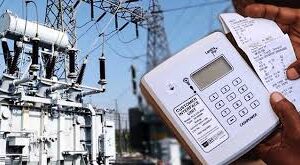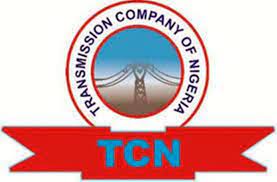On the occassion of its 25th Anniversary, the National Broadcasting Commission (NBC) under the leadership of Malam Ishaq Modibbo Kawu saw transformation like never before. NBC’s vision was envisiondd 25 ysars ago but it has not fully come into fruition until this time of ours when a highly spirited individual assumed at its helm of aff airs. Nobody says NBC never saw transformation at all in these years, but the bone of contention is, in relative terms, who could come near Kawu? Th e answer could only be obtained in the array of programs and achievements of this visionary individual – Ishaq Modibbo Kawu.
However, historically, establishing NBC as a broadcast regulatory body, credit must be given to ifs pioneer directors general and other distinguishing staff members for working fi rmly and fairly, not only to build the Commission, but to ensure that broadcasting followed the straight and narrow path, which the Nigeria Broadcasting Code, prescribed.
We cannot overemphasize the unique work done over the past 25 years. Courtesy of that, today, the NBC regulates a broadcasting industry that has grown exponentially, and has become a major force on the African continent. Coming back to the present state of transformation which is being doggedly pursued by the present DG, starting with the digitisation, one could noticeably agree that such gigantic project was given gigantic attention and gusto by this ace broadcaster and administrator. We are leading the process towards the transition from Analogue to Digital Broadcasting. Pursuit to that, in April 2016, a pilot phase of that transition was commenced in Jos, Plateau State.
A multiplex of 15 television Kawu Like us on: facebook: blueprint.ng twitter: @blueprintngr instagram: @blueprintNigeria channels to the people on the Plateau was off ered; a process that taught us lessons, about the possibilities and challenges of an actual Digital Broadcasting switch on. Lessons learnt from that pilot phase, were taken onboard, in the decision we took, to do the switch over in the FCT, in December, 2016. In Abuja, two multiplexes of 30 television channels were off ered. What was unique in Abuja, was the fact that it was launched by President Muhammadu Buhari, represented by Vice President, Yemi Osinbajo.
And the main kernel of that event, was the statement made openly, that the Buhari Administration is irrevocably committed to the Digital switch over in Nigeria. Not only that, President Muhammadu Buhari has consistently asserted that Nigeria is going to leverage on the new Digital Revolution to create a national digital economy, targeted at creating opportunities and accesses for our country’s very creative young people. Quoting the DG from his recent speech at the recently concluded 25th Anniversary of the commission, he said: “At the NBC, the work we are doing on the platform of digital broadcasting, fl ows DIRECTLY from President Muhammadu Buhari’s vision, for a digital economy that works for Nigeria’s young population.
“By the time we conclude the transition from Analogue to Digital Broadcasting in Nigeria, the Buhari administration would have created millions of new jobs; while a new platform of television viewership experience would also have been given to all the Nigerian people.” Now, six states in our geopolitical zones have spelt the difi tisation. Going forward, other states too will soon be wired and linked up to the revolution. Categorically speaking and as far as this country is concerned, from June this year upward, it’s a revolution galore in the broadcasting ecosystem because we are primarily going to have better visual and audio clarity.
For instance, from the Abuja’s get go, the FCT residents are now enjoying 30 free channels and over 450,000 Set-Top Boxes have been on sale. Reports indicate that more and more people are thronging to buy these boxes, the gateway into the digital era. Quoting the Information and Culture Minister, Alhaji Lai Mohammed was once reported as pointing out a number of initiatives that are put in place in order to achieve a credible and eff ective development of our TV and Production industries, and to successfully develop the digital economy. He mentioned them as thus: “there will be all encompassing Consumer Proposition which most Nigerians have never had access, free and easy access to Government and Public information through a touch of the remote control, Current Aff airs and News available through the middleware on the boxes and a world class Electronic Program Guide that will make Television viewing an unbeatable experience.”
Th e minister also expressed confi dence that within 3 years of the digital transition, 1 million jobs will be created in the development of television content, technical services, software development, as well as the installation and repair of Set-Top Boxes for over 24 million TV households, among others.
Th e increase in Free-To-Air channels and the separation of transmission from content aggregation, according to the minister, will spur an increase in TV production activities, as the Channels will now be able to focus on their TV shows and harness the variety of human and creative skills to compete to become the most watched channel. By this we could say that the revolution has come with endless possibilities which would as well create other downstream participation of all Nigerians.
Th ough the DSO requires much fi nancial muscle on the part of the government and broadcasters, the public, who are at the receive end, do not need to part with any huge amount of money to partake in the digital broadcasting feast. To me, DSO is akin to democracy – freedom to choose from many options. It is common knowledge that media pluralism is a cornerstone of democracy and this fact should be refl ected in the plurality of independent and autonomous media and in diversity of media content accessible to all.
Th us, by creating access to all content by all platforms we are going to forbid all forms of monopoly so that all Nigerians can get access to all types of content without having to expend money on multiple devices. In that case, the revolution is aff ording Nigerians an opportunity to choose from a variety of channels at next to no cost. More so, it will in no time off er Nigerians what they currently lack in other pay TVs. Still looking at it from democratic angle, I make bold to say that digitization is one of the country’s democratic dividends, in that apart from provision of jobs to our teeming unemployed youths and artisans, I as well believe that Nigerians as a whole would be happy to intact digitally with their TVs.
More so, judging by what we are seeing now, we may jump into a pleasing conclusion that Jos and Abuja’s transition is a success. What remains of us is to continually appeal to all the states of the federation to get involved in this revolution in view of the enormous economic and social opportunities that abound therein, which they can’t aff ord to miss out of. Stakeholder participation is also needed to drive this process. Partnership with the private sector should be one of the defi ning principle of this process because government alone cannot do it, hence the failure to meet the previous deadlines.



